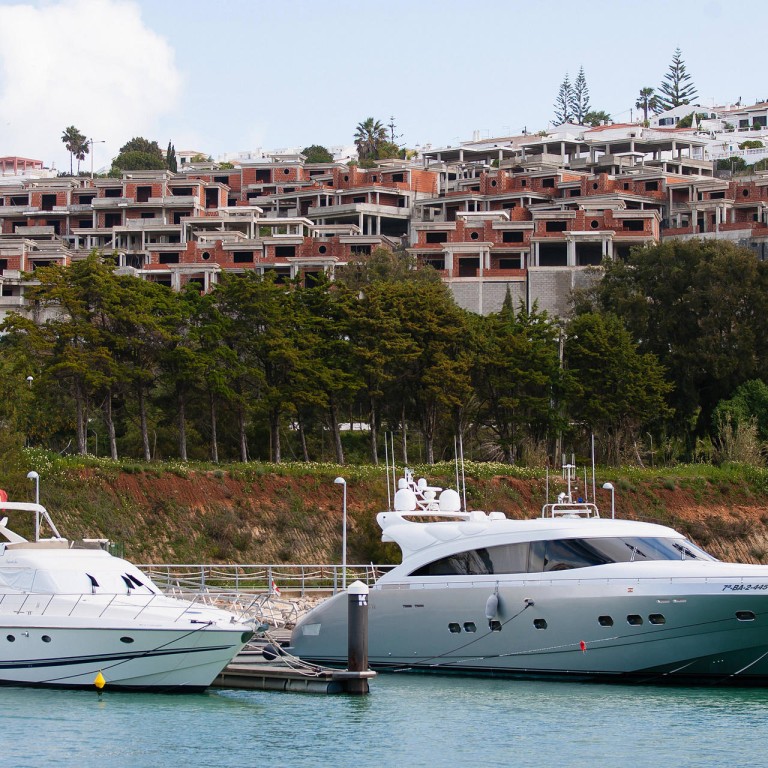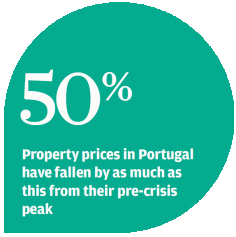
Southern European states offer property investors residency
Southern European states woo investors with visas that open door to citizenship within five years, drawing strong interest from China
Southern Europe's economies, ravaged by recession, are attempting to lure capital with attractive visa programmes that are already drawing attention from wealthy Chinese executives.

The Portuguese programme is already attracting buyers from China, drawn by bargain basement prices, decent yields, and low residency requirements. Owners need only spend seven days in Portugal in the first year of their residence, and 14 in each of the subsequent years.
They qualify for permanent residence after five years and can then apply for citizenship, which also grants them access to all other European Union nations.
"They find the yield attractive - that's the first thing they go for," Cameira said, with buyers looking to generate 6 to 8 per cent, net of all fees. Other motivations include the freedom to move about Europe and send their children to school there.
"The programme is very attractive to Chinese businessmen," Chris Liem, the owner of the Hong Kong branch of residential brokerage Engel & Völkers, said. "It provides them with security for the future, and it gives them opportunities for their children."
Last year was the very bottom of the market in Portugal, according to Tim Seconde, the country head of capital markets for real-estate brokerage CBRE. Just €100 million of commercial property changed hands, compared with €1.4 billion at the height of the market in 2007.
Seconde says the first goal of many golden visa buyers is simply to make sure they hit the €500,000 spending requirement. After that, they chase the return they're able to get. Seconde was about to close a deal for two strata-title office properties that were going to produce a yield of around 7 per cent, after fees.
Portugal was not hit with the massive oversupply problem that faced Spain, where ghost towns and deserted developments are common. So it requires a little more work to find suitable properties, but the risk factor is lower as well.
Liem said prices in Portugal have fallen 50 per cent from their height on some projects, presenting an attractive entry point. Overseas buyers face no restrictions, and can purchase the freehold on Portuguese property.
While the small number of strata-title office buildings in Lisbon are drawing interest, it's the sunny vacation spots on the coast that attract the most buyers. "The preferred number one choice is tourism and holiday properties in top condition and brand new," Cameira said.
The lawyer is hoping that Spain's programme, which is still making its way through the legislature, will be delayed, since Asian buyers may switch their focus to a country with a higher international profile. But Portugal has an advantage in being the first, which has helped it set up the infrastructure to enable Asian purchasers to make the most of the new scheme.
"I'm hoping that I can capitalise on that, that there is more experience and already an established market for them, rather than going into the unknown," Cameira said.
At CBRE, every person attempting to qualify for a golden visa in Portugal has been Chinese, whether from Hong Kong or the mainland. But other brokers have seen interest from Russia and India .
Given the lack of big commercial deals, Seconde has shifted focus to help golden visa buyers, and has found them savvy players looking for good deals.
"They're not blind investors who just pay €500,000 for a visa," Seconde said. "One thing we're thinking about is whether this is a flash in the pan or whether this is a sustainable new kind of buyer we're going to have in the next few years."
